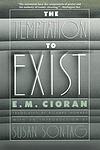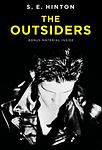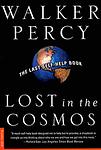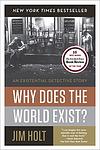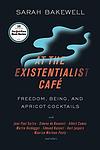The Greatest "Nonfiction, Existentialist" Books Since 1950
Click to learn how this list is calculated.
This list represents a comprehensive and trusted collection of the greatest books. Developed through a specialized algorithm, it brings together 284 'best of' book lists to form a definitive guide to the world's most acclaimed books. For those interested in how these books are chosen, additional details can be found on the rankings page.
Genres
Existentialist literature is a genre that explores the meaning and purpose of human existence, often through the lens of individual experience and subjective perception. These books often delve into themes of freedom, choice, and responsibility, and may challenge traditional notions of morality and societal norms. Existentialist literature can be introspective and philosophical, and may offer readers a unique perspective on the human condition and the search for meaning in a complex and often chaotic world.
Countries
Date Range
Reading Statistics
Click the button below to see how many of these books you've read!
Download
If you're interested in downloading this list as a CSV file for use in a spreadsheet application, you can easily do so by clicking the button below. Please note that to ensure a manageable file size and faster download, the CSV will include details for only the first 500 books.
Download-
1. The Rebel by Albert Camus
"The Rebel" is a philosophical exploration of rebellion and revolution. It dissects the nature and origins of rebellion, arguing that it arises from a basic human refusal to accept injustice. The book delves into the many forms rebellion can take, from personal revolt to political revolution, and examines the consequences and ethics of each. The author also critically evaluates the rebellious attitudes of various historical figures and movements, highlighting the potential for rebellion to either affirm or destroy human dignity.
-
2. Wittgenstein's Nephew by Thomas Bernhard
"Wittgenstein's Nephew" is a semi-autobiographical novel that explores the friendship between the narrator and his friend Paul, who is the nephew of the famous philosopher Ludwig Wittgenstein. The story takes place in Vienna and is set against the backdrop of the Austrian mental health system. The novel delves into themes of sanity, insanity, and the fine line that separates the two, while also offering a critique of Austrian society. It is a meditation on the nature of illness, both physical and mental, and the impact it has on personal relationships and one's perception of the world.
-
3. The Temptation To Exist by Emil Cioran
"The Temptation to Exist" is a philosophical work that explores the human condition and the inherent struggles of existence. The author delves into themes of nihilism, despair, and the search for meaning in a world filled with suffering. Through a series of thought-provoking essays, Cioran challenges traditional beliefs, questions the nature of reality, and reflects on the complexities of human existence, ultimately offering a bleak yet profound perspective on the human experience.
-
4. The Courage to Be by Paul Tillich
"The Courage to Be" is a philosophical work that explores the concept of courage in the face of existential threats and anxieties. The author argues that courage is not simply a bold act in the face of physical danger, but also the strength to affirm one's own being in spite of non-being, despair, and death. The book also discusses the role of God as the ultimate source of courage and suggests that embracing our existential anxieties can lead to self-affirmation and spiritual growth.
-
5. The Outsider by Colin Wilson
"The Outsider" is a seminal work of existentialist thought that explores the psyche of individuals who stand on the fringes of society, those who feel a profound sense of alienation and disconnection from the world around them. The book delves into the lives and works of various historical figures, including artists, writers, and philosophers, to examine the role of the outsider in shaping human consciousness and culture. It discusses the outsider's struggle with self-identity and the search for meaning in an indifferent universe, ultimately seeking to understand the potential for transcendence and the ways in which these individuals can reconcile their existential angst with the demands of everyday life.
-
6. Lost in the Cosmos by Walker Percy
The book is a satirical self-help guide that explores the human condition and our place in the universe through a series of thought experiments, quizzes, and essays. It delves into topics such as existentialism, semiotics, philosophy, science, and religion, all with a humorous twist. The book challenges readers to examine their lives, their beliefs, and their perceptions of reality, ultimately suggesting that we are all a little lost in the cosmos.
-
7. Why Does The World Exist? An Existential Detective Story by Jim Holt
In "Why Does The World Exist? An Existential Detective Story," Jim Holt explores the question of why there is something rather than nothing. He interviews philosophers, scientists, and theologians to try to find an answer, delving into topics such as the nature of existence, the origins of the universe, and the meaning of life. Along the way, he examines various theories and arguments, from the Big Bang to the concept of God, in an attempt to uncover the ultimate explanation for the existence of the world.
-
8. At The Existentialist Café: Freedom, Being, And Apricot Cocktails by Sarah Bakewell
"At The Existentialist Café" is a non-fiction book that explores the lives and ideas of a group of philosophers known as the existentialists. The book takes readers on a journey through the cafes of Paris in the 1930s and 40s, where philosophers such as Jean-Paul Sartre, Simone de Beauvoir, and Maurice Merleau-Ponty would gather to discuss their ideas about freedom, being, and the meaning of life. Bakewell weaves together their personal stories, philosophical theories, and the historical context in which they lived, to create a compelling and accessible introduction to existentialism.
-
9. The Denial of Death by Ernest Becker
"The Denial of Death" is a thought-provoking examination of the influence of death on human behavior and society. The author argues that the fear of death is a primary motivator in human life, influencing our actions, beliefs, and relationships. He explores how culture and religion are often mechanisms to deny and transcend the reality of death, offering symbolic immortality through beliefs in the afterlife or in the enduring impact of one's life work. The book also delves into the psychological impact of this denial and the concept of the "heroic individual" who seeks to leave a lasting legacy.
Reading Statistics
Click the button below to see how many of these books you've read!
Download
If you're interested in downloading this list as a CSV file for use in a spreadsheet application, you can easily do so by clicking the button below. Please note that to ensure a manageable file size and faster download, the CSV will include details for only the first 500 books.
Download

